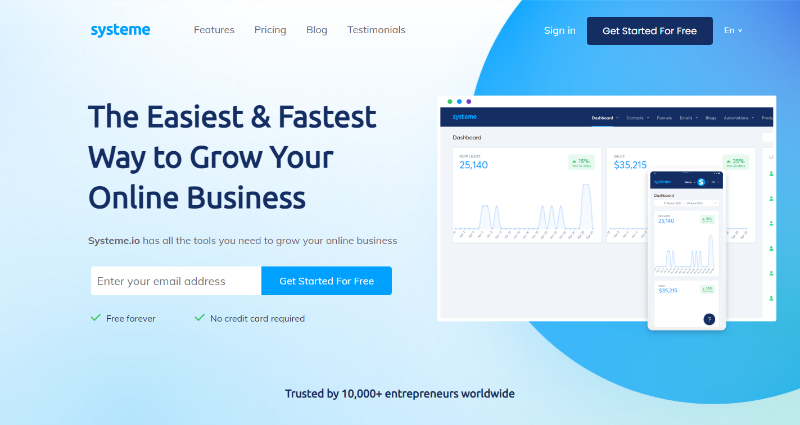
Marcus Reeves is a writer, publisher, and journalist whose business and pop culture writings have appeared in several prominent publications, including The New York Times, The Washington Post, Rolling Stone, and the San Francisco Chronicle. He is an adjunct instructor of writing at New York University.
A lead magnet is a marketing term for a free item or service that is given away for the purpose of gathering contact details; for example, lead magnets can be trial subscriptions, samples, white papers, e-newsletters, and free consultations. Marketers use lead magnets to create sales leads. The marketers attempt to convert the leads into paying customers of a product or service, or they may market unrelated offerings to the sales leads.
When a customer signs up for a trial version or provides a name and other details for a free sample, they effectively exchange their information for a lead magnet. Sometimes the nature of this exchange is made explicit, but not always. As a result, some types of lead magnets are criticized for their deceptive nature.
The most common type of lead magnet is the report/guide/tip sheet where the prospect provides personal information for content that is not otherwise available. When it is a guide or resource, the exchange of information is direct and obvious. The contact information is often then used to place the prospects in a sales funnel where progressive contact nudges them towards an actual purchase. This type of lead magnet often makes an extreme claim to entice people into access the content. For example, “Six Foolproof Tips To Land A Six Figure Salary” or “Eight Easy Renovations That Triple Your House’s Value.” This type of content is unique, valuable content that is not publicly available. It is not unheard of, however, for the content to simply be taken from publicly available resources and repackaged.
Another type of lead magnet is the quiz or survey that withholds the prospects' results until they have provided their email address. These types of lead magnets are typically matched thematically with the type of lead the marketer is seeking. For example, a car dealership might have a survey titled “How Much Is Your Car Really Worth?” A consumer that is planning to sell a car or upgrade their car may complete the survey only to find that the final result will only be sent to the email address they provide. In the case of physical products sold on or off-line, discount clubs or free shipping offers are used as lead magnets.
Like most lead generation techniques, lead magnets can be used responsibly, or they can be abused. Marketers who abuse lead magnets may see success in finding sales leads, but the actual conversions are often lower as a result.
Financial Fraud
Government Spending & Debt
Economy
Marketing Essentials
Portfolio Management
Financial Fraud
By clicking “Accept All Cookies”, you agree to the storing of cookies on your device to enhance site navigation, analyze site usage, and assist in our marketing efforts.
